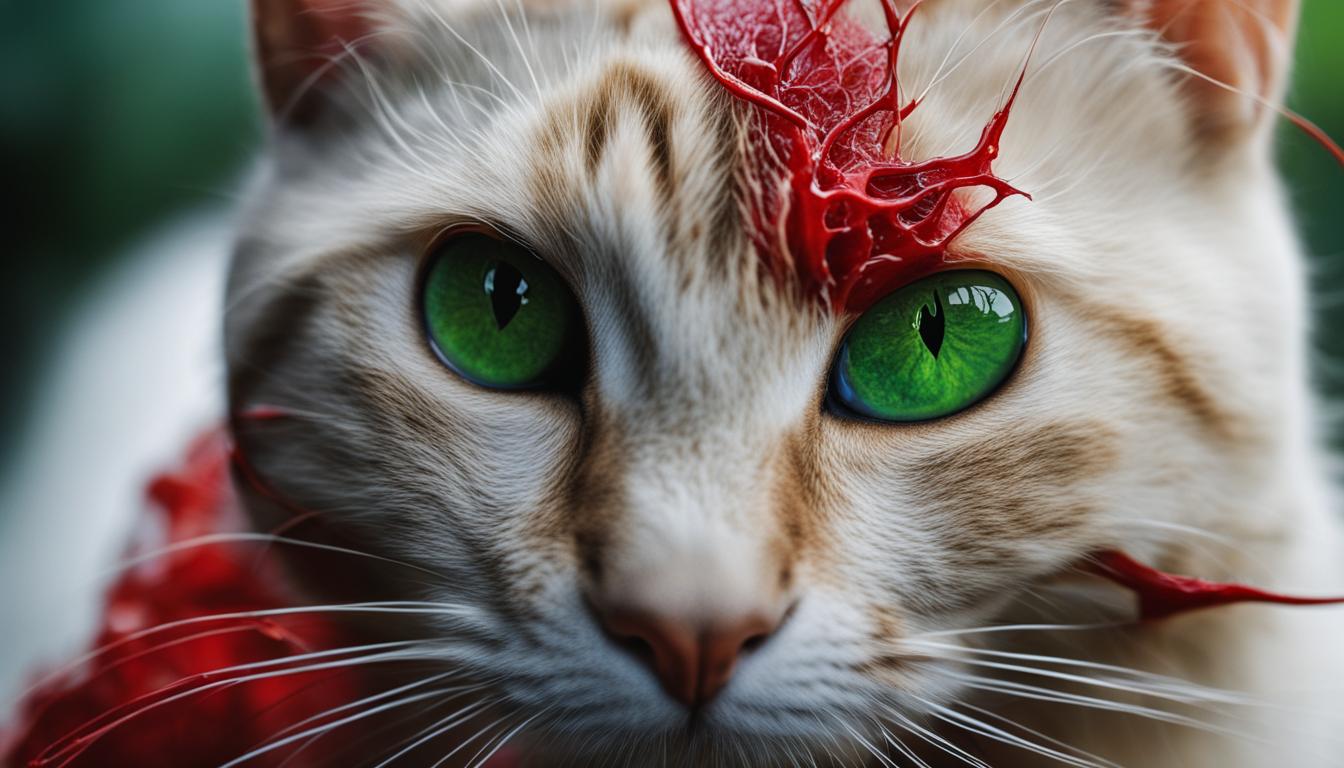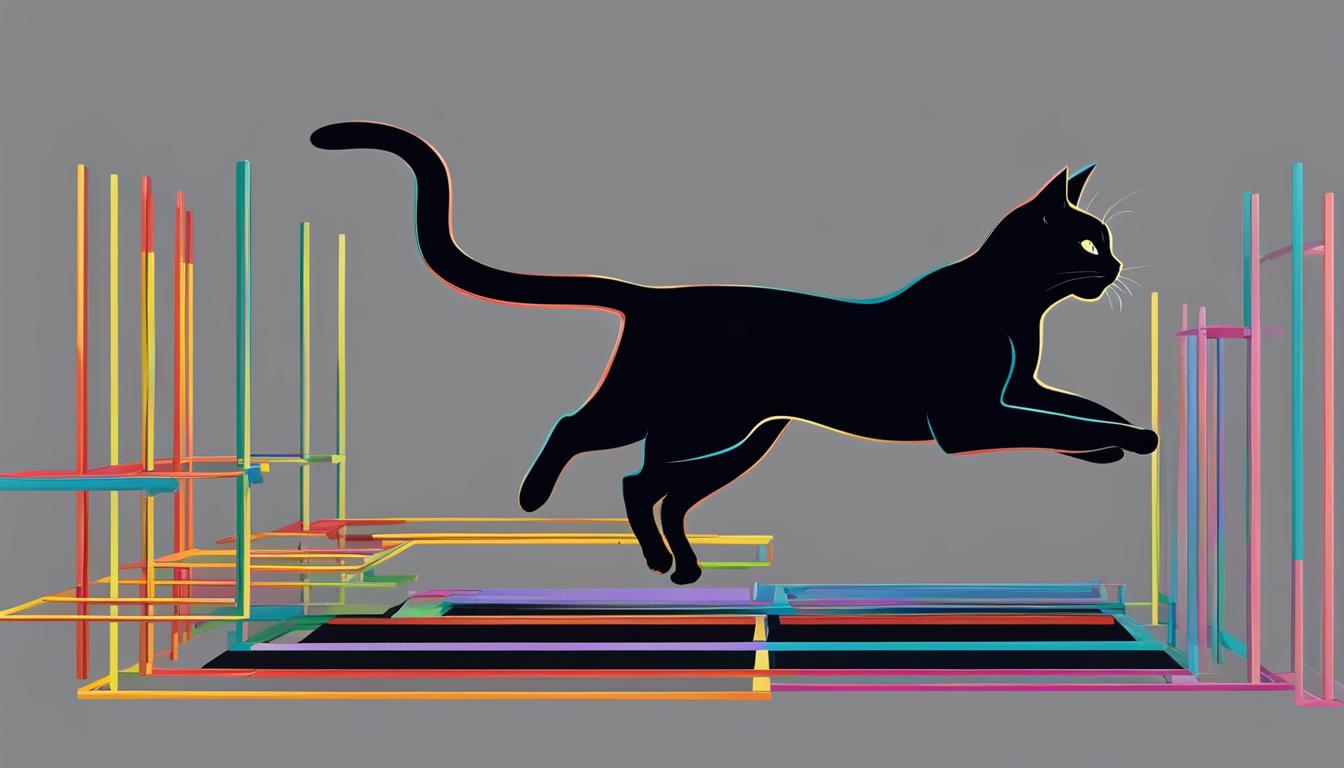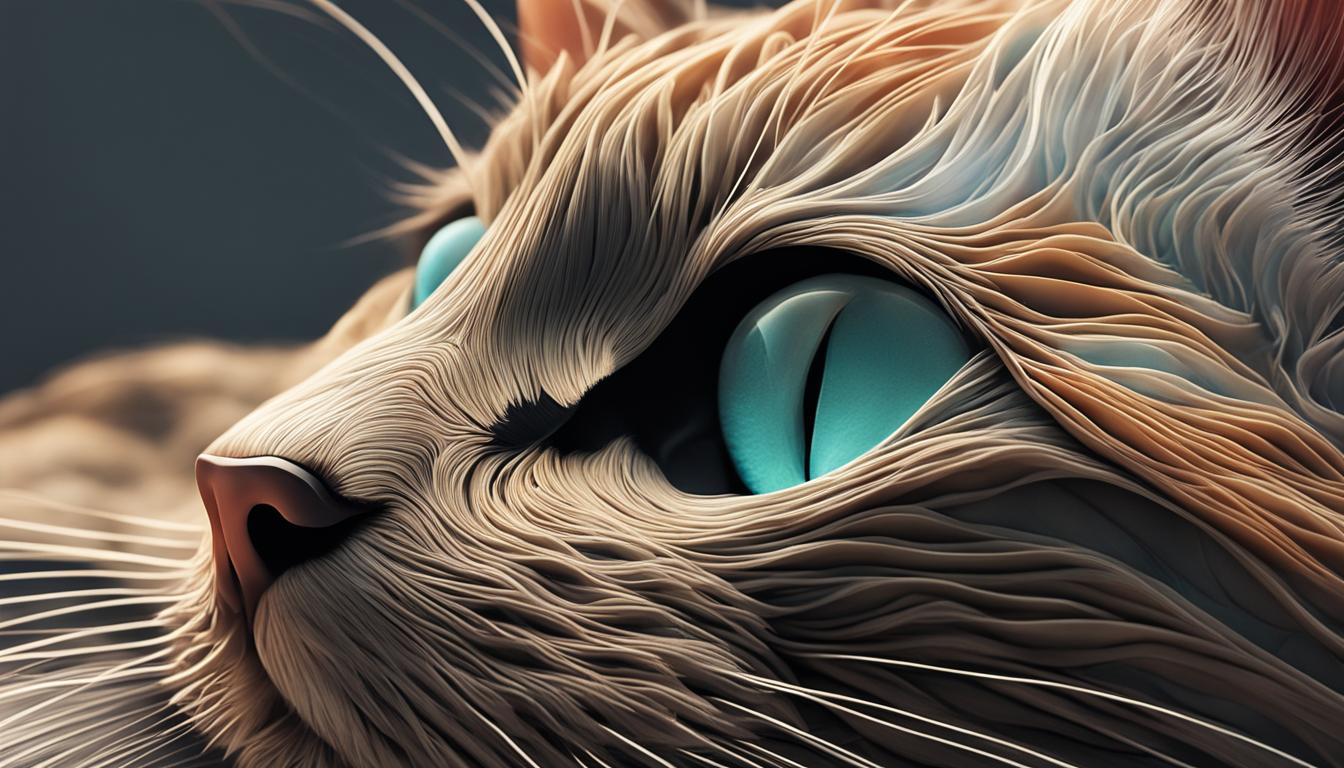As a cat lover, I know how important it is to keep our furry friends healthy and happy. One area that is often overlooked when it comes to feline health is their cardiovascular system. Just like humans, cats can also develop heart diseases that can significantly impact their quality of life. In this article, I will explore the various aspects of feline cardiovascular health, from the importance of regular checkups to nutrition and exercise tips that can help keep your cat’s heart in top shape.
Key Takeaways:
- Regular veterinary checkups are crucial for early detection of heart diseases in cats.
- Cats are susceptible to both congenital and acquired heart diseases.
- A balanced diet, rich in high-quality protein, is essential for maintaining a healthy feline heart.
- Exercise plays a vital role in promoting heart health and preventing obesity in cats.
- Early detection and proper treatment are essential for managing feline heart diseases.
Importance of Veterinarian Checkups for Feline Heart Health
Regular veterinary checkups, at least once a year, are essential for monitoring your cat’s heart health. While not all heart diseases can be detected through a stethoscope examination, it is a cost-effective approach for diagnosing otherwise healthy cats.
Congenital heart defects are relatively rare, occurring in only 1-2% of kittens. Acquired heart diseases, like cardiomyopathy, are more common and can lead to congestive heart failure. Early detection and treatment can help prevent complications and improve the cat’s quality of life.
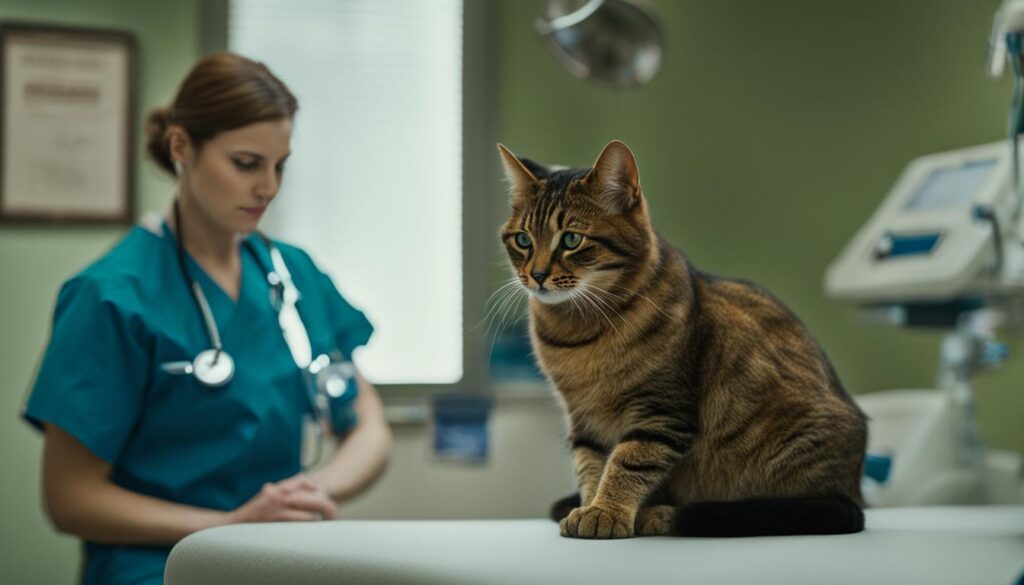
Regular checkups allow veterinarians to thoroughly assess your cat’s overall health, including their heart. Through a combination of physical examinations, listening for heart murmurs, and monitoring blood pressure, veterinarians can identify potential issues and recommend further diagnostic tests if necessary.
Early detection of heart disease is crucial for effective treatment. Diagnostic measures like X-rays and echocardiograms provide detailed images of the heart, helping veterinarians confirm diagnoses and develop appropriate treatment plans. Preventive care, such as dental cleanings, is also important as gum disease can impact heart health.
Nutrition and Feeding Tips for a Healthy Feline Heart
Feeding your beloved feline friend a heart-healthy diet is essential for maintaining their cardiovascular well-being. As obligate carnivores, cats require a diet that is rich in high-quality animal protein to support their heart health. Look for cat foods that have real meat listed as the main ingredient, as this ensures that your cat is receiving the necessary nutrients.
When selecting cat food, it’s important to avoid excessive carbohydrates. While some grains and vegetables, such as oats, rice, and spinach, can be included in small amounts, the focus should be on a protein-rich diet. Excessive carbohydrates can lead to weight gain and put unnecessary strain on your cat’s heart.
Additionally, overfeeding can contribute to obesity, which is a major risk factor for heart disease. Be mindful of portion sizes and follow the feeding guidelines provided by the cat food manufacturer. If you’re unsure about the appropriate portion size for your cat, consult your veterinarian for personalized recommendations.
Heart-Healthy Cat Treats and Supplements
When it comes to treats, opt for options that are fish-based or provide lean sources of protein. Pieces of cooked fish or eggs can make for tasty and heart-healthy treats for your feline companion. Fruits like cantaloupe can also be given in moderation, as they provide essential vitamins and antioxidants.
Furthermore, certain supplements can support your cat’s overall heart health. Omega-3 essential fatty acids (EFAs) have been shown to have anti-inflammatory properties and can help maintain a healthy cardiovascular system. Additionally, CBD supplements may have calming effects and can be beneficial for cats with stress-related heart conditions. Always consult with your veterinarian before introducing any new supplements into your cat’s diet.
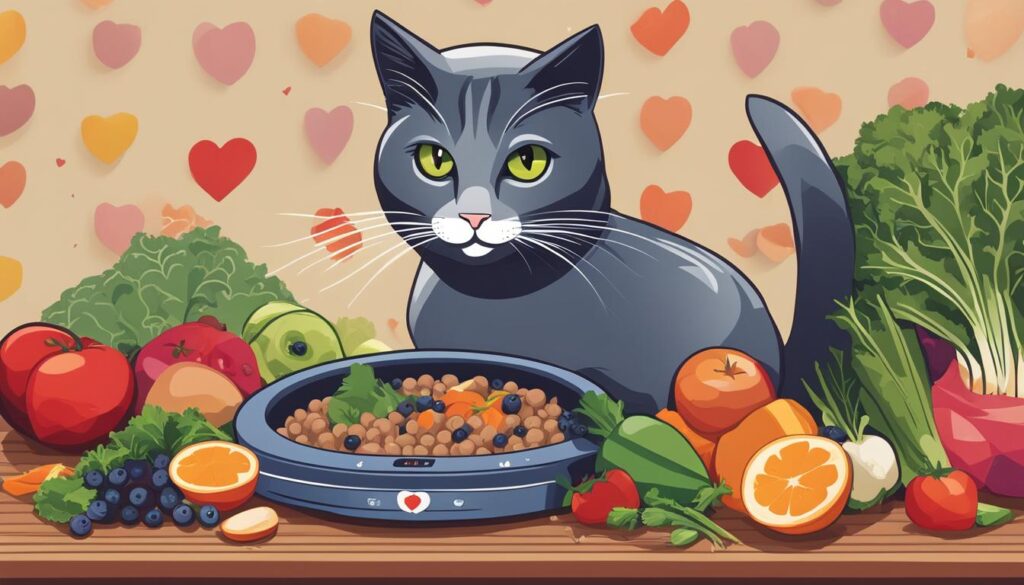
By providing your cat with a nutritionally balanced, high-quality, and heart-healthy diet, you can help promote their cardiovascular well-being and ensure they live a long and healthy life.
Importance of Exercise in Feline Heart Health
When it comes to keeping your cat’s heart healthy, regular exercise plays a vital role. Just like humans, cats need physical activity to maintain a healthy weight and promote cardiovascular fitness. Engaging in daily play sessions with your feline friend not only provides mental stimulation but also helps prevent obesity, which can put extra stress on the heart. Aim for at least 20 minutes of exercise per day, divided into two sessions, to keep your cat active and fit.
To make exercise more enjoyable for your cat, incorporate interactive toys and puzzles into playtime. These toys stimulate their natural hunting instincts and provide both physical and mental stimulation. Whether it’s chasing a feather wand or pouncing on a toy mouse, these activities help keep your cat’s heart pumping and strengthen their muscles. Regular exercise also improves overall circulation, which is essential for a healthy cardiovascular system.
If your cat is overweight or has a pre-existing heart condition, it’s important to consult with your veterinarian for personalized exercise recommendations. They can provide guidance on the appropriate level and intensity of exercise for your cat’s specific needs. Additionally, they can recommend exercises that are low-impact and easy on the joints, reducing the risk of injury.
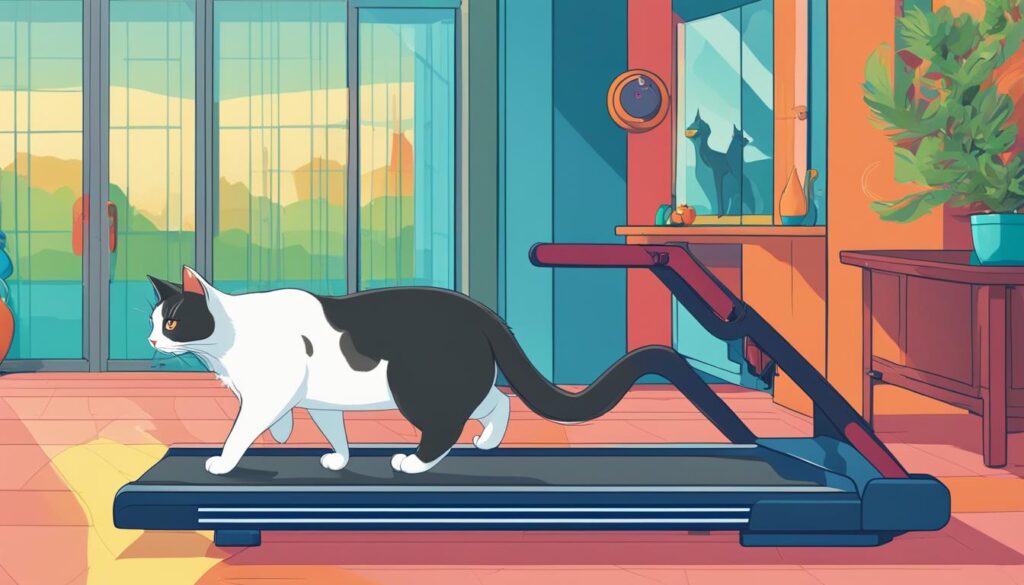
The Benefits of Exercise for Cats:
- Helps maintain a healthy weight
- Improves cardiovascular fitness
- Stimulates mental activity
- Strengthens muscles
- Enhances overall circulation
“Regular exercise not only keeps your cat in shape but also promotes heart health and overall well-being.”
| Exercise Activities | Recommended Duration |
|---|---|
| Interactive play with toys | 10-15 minutes, 2 times a day |
| Treadmill or wheel exercises | 5-10 minutes, 2-3 times a week |
| Leash training for outdoor walks | 10-20 minutes, 1-2 times a day |
The Role of Veterinary Exams and Checkups in Monitoring Feline Heart Health
Regular veterinary exams and checkups play a crucial role in monitoring your cat’s heart health and detecting any signs of heart disease early. These routine visits allow your veterinarian to conduct a thorough physical examination, listen for heart murmurs, and measure blood pressure. By closely monitoring these vital signs, your vet can identify any potential issues that may require further investigation or treatment.
In addition to the physical examination, diagnostic measures such as X-rays and echocardiograms can provide detailed images of the heart, allowing for a more accurate diagnosis. These tests can reveal abnormalities in the heart’s structure or function, helping your vet to determine if there are any underlying heart conditions that need to be addressed.
Preventive care is also an essential component of maintaining feline heart health. Regular dental cleanings, for example, are important because gum disease can have an impact on heart health. Your vet can provide recommendations for wellness exams, dental care, and other preventive measures specific to your cat’s needs.
The Importance of Regular Vet Checkups for Cats
Regular vet checkups are essential for cats, as they can help identify and address potential health issues early on. When it comes to heart health, early detection of heart disease is key. Cats are notorious for hiding signs of illness, including heart disease, so having a professional evaluate their overall health is crucial.
During a vet checkup, your veterinarian will assess your cat’s heart health through a physical examination and listening for any abnormal heart sounds. They may also measure your cat’s blood pressure to ensure it falls within a healthy range. These simple yet vital assessments can provide valuable insights into your cat’s cardiovascular health.
Moreover, regular vet checkups allow for ongoing monitoring and can help establish a baseline for your cat’s heart health. By detecting any changes or abnormalities early, your vet can recommend appropriate treatment options or further diagnostic testing if necessary.
| Signs of Feline Heart Disease | What to Look For |
|---|---|
| Loss of appetite | Monitor for any decrease in your cat’s appetite, as it can be a sign of heart disease. |
| Weight loss | Unexplained weight loss can also be a symptom of heart disease and should be addressed by a veterinarian. |
| Lethargy | If your cat is less active and seems unusually tired or lethargic, it may be a cause for concern. |
| Increased breathing | Pay attention to any changes in your cat’s breathing patterns, such as rapid or labored breathing. |
| Difficulty breathing | Struggling to breathe or panting excessively can indicate a potential heart problem. |
If you notice any of these signs or symptoms, it is important to seek veterinary care promptly. While some symptoms may be unrelated to heart disease, it is always better to err on the side of caution and have your cat evaluated by a professional.
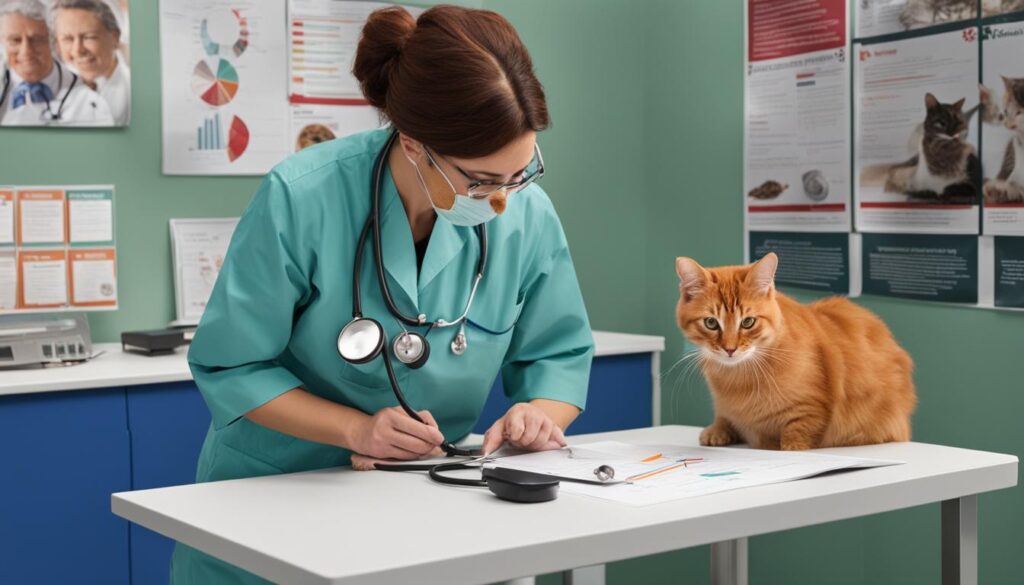
Monitoring your cat’s heart health through regular veterinary exams and checkups is essential for maintaining their overall well-being. By working closely with your vet and staying vigilant for any signs or symptoms of heart disease, you can ensure that your feline friend receives the necessary care and treatment to keep their heart in purr-fect condition.
Signs and Symptoms of Feline Heart Disease
Recognizing the signs and symptoms of feline heart disease is crucial for early detection and prompt treatment. Cats are experts at masking their illnesses, so it’s important to be vigilant and observant. Here are some common warning signs to look out for:
- Loss of Appetite: A sudden decrease in your cat’s interest in food can be a sign of heart disease. Pay attention to any changes in their eating habits.
- Weight Loss: Unexplained weight loss can be a symptom of various health issues, including heart disease. Keep an eye on your cat’s weight and consult a veterinarian if you notice any significant changes.
- Lethargy: If your cat is unusually tired or lacks energy, it may be a sign of heart disease. Monitor their activity levels and seek veterinary care if they seem excessively lethargic.
- Increased Breathing: Rapid or labored breathing, especially at rest, can indicate heart disease. Watch for any changes in your cat’s breathing patterns.
- Difficulty Breathing: Cats with heart disease may experience difficulty breathing or develop a persistent cough. Seek immediate veterinary attention if you notice these symptoms.
- Other Potential Signs: Cats with heart disease may also exhibit collapsing episodes or hind leg paralysis due to blood clots. Kittens with heart disease may have stunted growth or fail to thrive.
Remember, these symptoms can also be signs of other health issues, so it’s essential to consult a veterinarian for an accurate diagnosis.
Prevention and Treatment of Feline Heart Disease
When it comes to feline heart disease, prevention is key. While not all heart conditions can be prevented, there are steps you can take to minimize the risk and manage existing conditions to ensure the well-being of your beloved cat. Here are some important measures to focus on:
1. Providing a Balanced Diet
A balanced diet is crucial for maintaining your cat’s heart health. Opt for high-quality cat food that contains real meat as the main ingredient. Avoid excessive carbohydrates and opt for small amounts of grains and vegetables. Additionally, consider incorporating heart-healthy supplements like omega-3 essential fatty acids and CBD to support overall cardiovascular health.
2. Regular Exercise
Regular exercise plays a vital role in keeping your cat’s heart healthy. Engage in daily play sessions using interactive toys and puzzles to ensure your cat gets the physical activity it needs. Aim for at least 20 minutes of exercise per day, divided into two sessions. Regular exercise helps prevent obesity, which can put extra stress on the heart.
3. Maintaining a Healthy Weight
Obesity is a significant risk factor for heart disease in cats. Ensure your cat maintains a healthy weight by providing a balanced diet and regular exercise. Consult your veterinarian for personalized recommendations, especially if your cat is overweight or has a heart condition.
In terms of treatment, specific medications may be prescribed depending on the type of heart condition your cat has. Medications such as beta-blockers, diltiazem, diuretics, and ACE inhibitors are commonly used to manage feline heart disease. In some cases, surgical intervention may be necessary. It’s important to discuss treatment options with your veterinarian based on your cat’s specific diagnosis.
Summary
Preventing and managing feline heart disease requires a proactive approach that includes providing a balanced diet, regular exercise, and maintaining a healthy weight. Early detection through regular veterinary checkups is crucial for ensuring timely treatment. By following these preventive measures and working closely with your veterinarian, you can help keep your cat’s heart in purr-fect condition.
Conclusion
As a cat owner, I understand the importance of maintaining my feline friend’s heart health. By following a few simple steps, I can ensure that my cat’s cardiovascular system stays in purr-fect condition.
Regular veterinary checkups are essential for caring for your cat’s heart. Through thorough medical examinations and diagnostic measures like echocardiograms, potential heart diseases can be detected early, leading to improved treatment outcomes.
In addition to regular checkups, promoting cat cardiovascular health involves providing a balanced diet, regular exercise, and being aware of the signs and symptoms of heart disease. A high-quality, high-protein diet, supplemented with omega-3 EFAs, can support heart health. Daily exercise, through interactive play sessions, helps maintain a healthy weight and prevents heart-related complications.
By taking a proactive approach to feline heart health, I can ensure that my cat’s heart stays strong and healthy. Remember, your furry companion relies on you for their well-being, so let’s continue to prioritize their cardiovascular health!
FAQ
What are the risks of heart disease in cats?
Cats are at potential risk for various heart diseases, both congenital and acquired. Congenital heart defects are rare, while acquired heart diseases like cardiomyopathy are more common.
How often should I take my cat for veterinary checkups?
Regular veterinary checkups, at least once a year, are essential for monitoring your cat’s heart health and detecting any signs of heart disease early.
How can I support my cat’s heart health through diet?
Feeding your cat a high-quality, high-protein diet that contains real meat as the main ingredient is crucial for maintaining a healthy heart. Avoid excessive carbohydrates and opt for healthy treats like fish, cooked eggs, and cantaloupe.
How much exercise does my cat need for a healthy heart?
Aim for at least 20 minutes of exercise per day, divided into two sessions. Engage in daily play sessions with interactive toys and puzzles to promote heart health and prevent obesity.
What role do veterinary exams play in monitoring my cat’s heart health?
Regular veterinary exams are crucial for monitoring your cat’s heart health and detecting any signs of heart disease early. Physical examinations, X-rays, and echocardiograms provide detailed information about the heart’s condition.
What are the signs and symptoms of feline heart disease?
Common symptoms of feline heart disease include loss of appetite, weight loss, lethargy, increased breathing, difficulty breathing, collapse, hind leg paralysis, and stunted growth in kittens with heart disease.
Can feline heart disease be prevented and treated?
While not all feline heart diseases can be prevented, you can take steps to minimize the risk and manage existing conditions. Medications, dietary changes, and surgical intervention may be necessary depending on the specific diagnosis.
How can I maintain my cat’s overall heart health?
Regular veterinary checkups, a balanced diet, exercise, and early detection through monitoring and diagnostic measures can help prevent and manage feline heart disease, promoting your cat’s overall heart health.
Source Links
- https://www.hillspet.com/cat-care/healthcare/cat-heart-health-and-feline-heart-disease
- https://www.vet.cornell.edu/departments-centers-and-institutes/cornell-feline-health-center/health-information/feline-health-topics/diagnosis-heart-disease
- https://petreleaf.com/blog/cat-heart-health-how-to-support-your-cats-heart-health/amp

